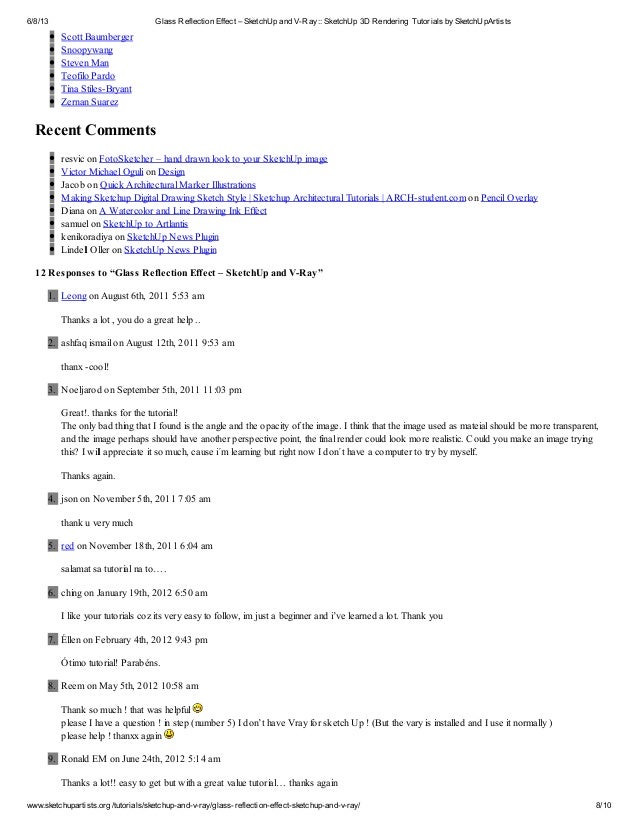
- SKETCHUP MIRROR REFLECTION HOW TO
- SKETCHUP MIRROR REFLECTION FULL
- SKETCHUP MIRROR REFLECTION SOFTWARE
- SKETCHUP MIRROR REFLECTION TV
So, even after a material is changed it's still the same panorama, storing the original material assignment, used to render the reflection.Īfter changing the floor material from wood to terazzo the mirror still uses the original material. The panoramas are captured only when the scene is loaded and used for the whole duration of the scene viewing. Light probe panoramas are not recaptured when a material is changed using the material picker, because this is a time-consuming operation and would cause the scene to freeze temporarily. Reflection doesn't react to material picker changes Mirror is using a light probe from the bathroom. Mirror is using a light probe from the room behind the wall, because there is no light probe in the bathroom. Finally, make sure there is a light probe placed in the room with the incorrect reflection. If you are using SketchUp, turn the mesh into a group or component, so the mesh is not merged with other meshes using the same material when the model is exported. Make sure that the object mesh fully belongs to the room. The object with incorrect reflection has been assigned a light probe placed in another room, so the reflection uses a panorama from another room. Reflection shows objects from another room
SKETCHUP MIRROR REFLECTION TV
Reflection in the TV screen is not aligned with reflection on the wall - objects are using different light probes. Try moving the closest light probes around or removing some of them.

If two neighboring objects have inconsistent reflections they have been assigned different light probes.

When the scene is loaded all objects in the scene are assigned the closest light probes such that the object is visible from the assigned light probe. Reflections on neighboring objects are inconsistent See the below "Reflections on neighboring objects are inconsistent" issue
SKETCHUP MIRROR REFLECTION FULL
The captured panoramas are 2D and don't have full 3D information about the scene needed to correctly trace the incoming reflection rays, however in many cases approximating the incoming ray from one of the panoramas gives near-accurate results. The approximate technique is based on 360° panoramas captured by light probes placed in the scene. Rendering physically accurate reflections requires tracing how light rays bounce through the scene, which would be too complex computationally and lead to a very low frame-rate for a scene visitor using an average desktop or mobile device. In her spare time and as a constant concern for the needs of others she designs eco-friendly jewelry to support a community program for children displaced by violence.Reflections in Shapespark may be inaccurate as they use a fast approximate technique suitable for real-time visualization on devices not equipped with a powerful graphics card.
SKETCHUP MIRROR REFLECTION HOW TO
She is actually working on her next book on how to use Sketchup in a specific Interior Design topic. She was awarded with a few architectural projects and was one of the winners of Ventures2002. With degrees in interior design and architecture and a strong entrepreneurial background she is able to cross over between her artistic and technical capacities. She is actually the CEO of a company that provides outsourcing of drafting and rendering services worldwide, and she works as a designer.
SKETCHUP MIRROR REFLECTION SOFTWARE
For several years she was the Latin American support for various software programs related to architecture and interior design and trained hundreds of people.

She is a leading software instructor at the college and private levels. She has concentrated on the application of information and communication technologies in the field of interior design and architecture. Adriana Granados is an independent writer and author of Google Sketchup for Interior Design and Space Planning, the first books in Sketchup dedicated to Interior Design.


 0 kommentar(er)
0 kommentar(er)
